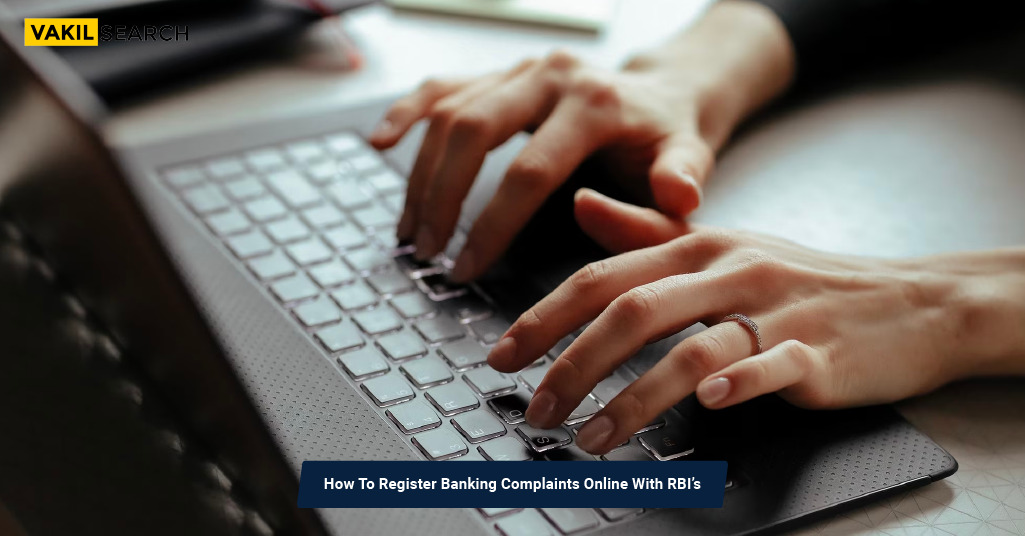Discover how to file banking complaints with RBI through the RBI Banking Ombudsman Scheme. Ensure resolution of your banking concerns.
Introduction
The Reserve Bank of India (RBI) serves as the central banking institution controlling the monetary policy and financial stability of the Indian rupee. Its roles include being a banking license issuer, a monetary authority, a currency issuer, a banker for the government, and more. In addition to these functions, RBI addresses consumer complaints. This article focuses on understanding how to register banking complaints online with RBI, utilising the RBI Banking Ombudsman Scheme.
Understanding RBI’s Main Functions
Banking License Issuer
According to Sec 22 of the Banking Regulation Act, every bank intending to operate in India must obtain a license from RBI.
Monetary Authority
RBI controls the money flow in the Indian economy to stabilise exchange rates, maintain financial stability, control inflation, and balance payments.
Currency Issuer
RBI has the authority to issue currency and monitor circulation, including combating counterfeit currency.
Banker for the Government
RBI provides short-term credit and acts as a financial advisor to both central and state governments.
Bank’s Bank
Banks can secure loans and use their collaterals as security by borrowing money from RBI during a crisis.
Foreign Exchange Manager
RBI is responsible for managing foreign exchange, enforcing the Foreign Exchange Management Act (FEMA), and maintaining the Indian rupee’s exchange rate against foreign currencies.
Understanding the RBI Banking Ombudsman Scheme
The RBI Banking Ombudsman Scheme was established in 2006 to enable individuals to file complaints and resolve banking issues. This scheme aims to facilitate the satisfaction or settlement of complaints regarding specific services offered by banks.
Coverage
All commercial banks, regional rural banks, co-operative banks, and public sector and nationalised banks fall under the Ombudsman scheme. Presently, there are 15 banking Ombudsmen with offices, most located in state capitals.
Types of Complaints Addressed
Customers can register various types of complaints under the RBI Banking Ombudsman Scheme:
Non-Payment or Delayed Payment:
Non-payment or inordinate delay in the payment or collection of cheques, drafts, bills, etc.
Currency-Related Issues:
Non-acceptance of small denomination notes or coins without sufficient cause.
Remittance and Transaction Delays:
- Non-payment or delay in payment of inward remittances.
- Failure to issue or delay in issuing drafts, pay orders, or bankers’ cheques.
Service Related Issues:
- Failure to provide promised banking facility or adhere to working hours.
- Levying charges without adequate prior notice to the customer.
When to Approach the Banking Ombudsman
You can approach the Banking Ombudsman if:
- You haven’t received a reply from your bank within one month from the complaint submission.
- The bank has rejected your complaint.
- You are dissatisfied with the bank’s reply.
- Filing an Online Complaint with RBI Banking Ombudsman
To file an online complaint with the RBI Ombudsman, follow these steps:
Visit the Official Website:
Log on to the official website (https://secweb.rbi.org.in/BO/precompltindex.htm).
Provide Complaint Details:
Submit the details of your complaint.
Upload Supporting Documents:
Upload the complaint letter, supporting documents, original complaint to the concerned bank, and the response received from the bank.
Submit in Prescribed Format:
Ensure all documents are uploaded in PDF or .txt format as required.
Key Points to Remember
Here are important points to consider when filing a complaint with the RBI Banking Ombudsman:
- The complaint should not have been reported to the Banking Ombudsman previously.
- The subject matter should not have been decided by any forum, court, or arbitrator.
- The RBI Banking Ombudsman does not charge any fee for resolving customer complaints.
Conclusion
In conclusion, the RBI Banking Ombudsman Scheme stands as a crucial avenue for customers to address their grievances with banks. Through this scheme, individuals can effectively file complaints online, seeking a fair and impartial resolution to their banking-related concerns. It’s of paramount importance to comprehend the various types of complaints that can be registered and the appropriate process for resolution. Additionally, legal assistance from Vakilsearch can further guide and support individuals in navigating this process seamlessly, ensuring a satisfactory resolution to their banking complaints.
Read more,


